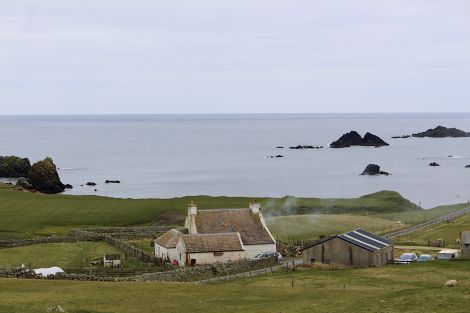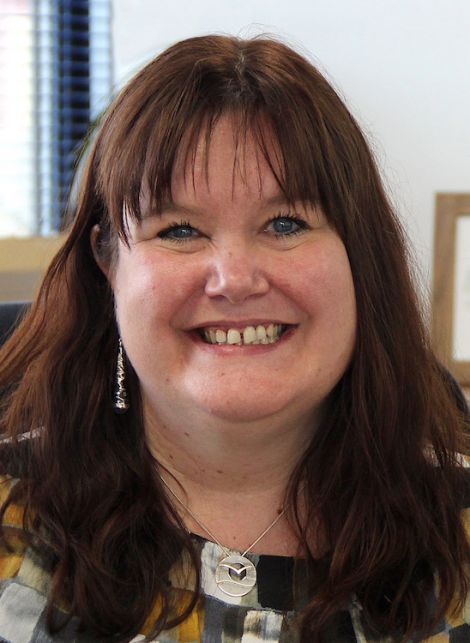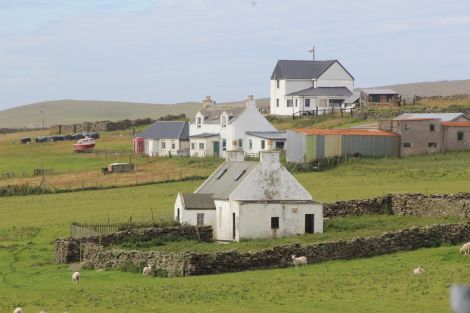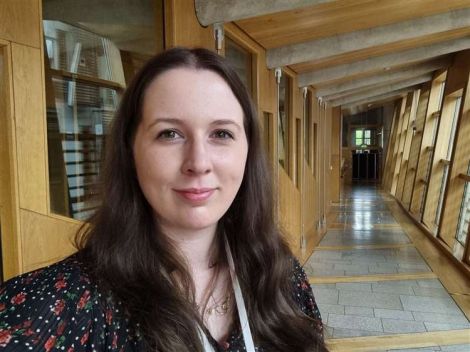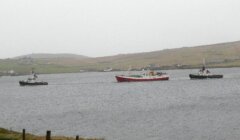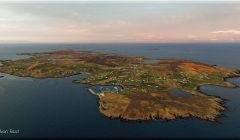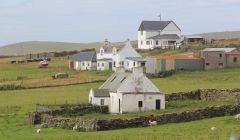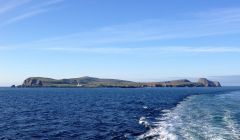Community / Mixed feedback for ‘sticking plaster’ islands bond proposal
The Fair Isle community believes it could act as a pilot area for the Scottish Government plan to tackle rural depopulation
A PROPOSAL to offer up to £50,000 for a family to stay in or move to Scottish islands would only be a “sticking plaster for depopulation”, according to Shetland Islands Council’s chief executive Maggie Sandison.
She also believes the Scottish Government’s proposed investment will be “spread very thinly across Scotland’s islands” and needs to be targeted at the more remote or fragile communities.
Meanwhile a group representing Skerries, Fair Isle, Fetlar, Foula and Papa Stour said while investment is welcome it is a “drop in the ocean” when it comes to tackling the issue of rural depopulation.
The islands bond, which was included in the SNP’s manifesto for the 2021 election, would offer 100 payments of up to £50,000 to young people and families over the coming years.
The money would aim to encourage them to stay in or move to islands threatened by depopulation.
Bonds issued would support people to buy, build or renovate homes, start businesses and otherwise make their lives for the long-term in island communities.
The idea has received mixed views – words such as “gimmick” and “bribe” have been bandied out – but the SNP believes it would address some of the key financial barriers for people who want to live in the islands.
The Scottish Government recently consulted on the island bond proposal, ahead of anticipated implementation this year, and again there was varying feedback.
Council chief Sandison said the value of the bond would only come into play if the “fundamental issues” facing more remote communities are solved at the same time.
She said in response to the consultation that investment in infrastructure to support economic development opportunities, so people are able to undertake “viable and high quality employment” was key – with digital connectivity a major component of this.
Become a member of Shetland News
Sandison also highlighted that people knowing someone has moved in with the support of £50,000 may create tensions in small communities.
“A family’s ability to integrate, and thrive, within small communities, very much depends on their aptitude for island living – there is a risk that this bond overrides these considerations for people, when making choices about moving,” she continued.
“This can be hugely problematic for them, and for their neighbours, when things may not work out, but future choices have become limited.”
So what about people on Shetland’s outlying islands themselves?
The Islands with Small Populations group, which represents Skerries, Fair Isle, Fetlar, Foula and Papa Stour, said the issues of depopulation are more complex than what the bond is trying to achieve.
For example, it said in some communities they are no houses available to buy, while decent broadband requires to be made a priority.
“It’s good that the investment is there, but it won’t solve the issue of depopulation: the proposed investment will be spread very thinly (100 households), across 95 islands – therefore it feels tokenistic, and a drop in the ocean,” the group said.
It also stressed the importance of having young people in the islands to deliver community services, such as the fire service, while people’s health deterioration is another factor in folk moving away from remote islands.
The Fair Isle Committee and Community Association also had its say, noting that on the remote island the population has dropped from over 70 to 45 in the space of three decades.
Of these around 27 are of working age.
It said that the majority of the feedback from the community was favourable to the bond idea.
“We believe that many of the Scottish islands are facing very different issues and that the size of the proposed funding would probably not have a huge impact, or the desired success if spread across over 70+ islands,” the group wrote.
“It is thought a bigger impact could be made would the bonds be allocated to islands with the most critical population decline, i.e. the very small communities.”
There is also a worry that if the bond created a sense of competition between islands this could cause “serious problems, risking our communities”.
The community also feels that Fair Isle could be an ideal place to have a pilot of the scheme and act as a “case study to closely monitor the delivery process and impact of the bonds on a remote and low-population island”.
Meanwhile national organisations and agencies also gave their view. The Scottish Crofting Federation remarked that a grant of £50,000 is “a lot but will not help with the vastly over-priced housing situation”.
The Scottish Islands Federation said while it welcomed the “much needed discussion” stimulated by the bond idea, it had a number of questions, reservations and concerns.
Public sociology lecturer at Edinburgh’s Queen Margaret University Karl Johnson, who is from Brae, said it has been clear the bond will make “little significant, nor sustainable impact in Shetland”.
“My main concern would be for social cohesion of the communities in which a bond recipient moves to,” he explained to Shetland News.
“Small communities (particularly rural ones) are reliant upon positive interdependent relationships – what we usually think of as simply ‘looking out for one another’ – because folk share many of the same successes and challenges on a daily basis.
“They’re also distanced from the support of structures and institutions of The State (both in practical and imagined terms), turning instead to those around them.
“We know that ‘insider/outsider’ tensions can exist in these same communities, and so there could potentially be some resentment towards an incomer who had benefitted financially to move to an area where locals may feel they have had to work harder to live in, and are emotionally invested in.”
Johnson added that there could also be feelings of resentment towards both central and local authorities if communities feel ignored.
“This would amplify the isolation already felt in some areas, and impact on the shared wellbeing of residents,” he said.
“As a centralised incentive, it lacks the local knowledge and expertise required – not least because different island communities can have quite different needs and resources – there is not a ‘one-size-fits-all’ solution.
“Even within the different isles of Shetland, these situations present in different ways.
“Coupled with the limited amount of funding to share out, we’re no further forward in seeing sufficient, tangible long-term commitments to addressing the issues of depopulation, ageing workforce, infrastructure, opportunities, accessibility and inclusivity.
“These are complex, embedded and interconnected issues which cannot be resolved within the lifespan of one government or council.”
The SNP’s Highlands and Islands MSP Emma Roddick however told Shetland News that bonds will “really make a difference in addressing issues individuals are having staying in or moving to the islands, such as getting cash together for a deposit on a house or setting up a business”.
But echoing some of the concerns given in the consultation, she acknowledged that depopulation is a wide issue.
“I think we need to recognise that depopulation does not happen solely due to personal circumstances; if it costs you a small fortune to get to work every day, one payout isn’t going to make your life sustainable,” the MSP said.
“It is crucial that the wider picture is considered, meaning looking at the high cost of living and availability of public services like transport and healthcare.
“I will continue to press for investment that addresses these drivers alongside helpful additions like the bonds.”
Become a member of Shetland News
Shetland News is asking its readers to consider paying for membership to get additional perks:
- Removal of third-party ads;
- Bookmark posts to read later;
- Exclusive curated weekly newsletter;
- Hide membership messages;
- Comments open for discussion.
If you appreciate what we do and feel strongly about impartial local journalism, then please become a member of Shetland News by either making a single payment, or setting up a monthly, quarterly or yearly subscription.






